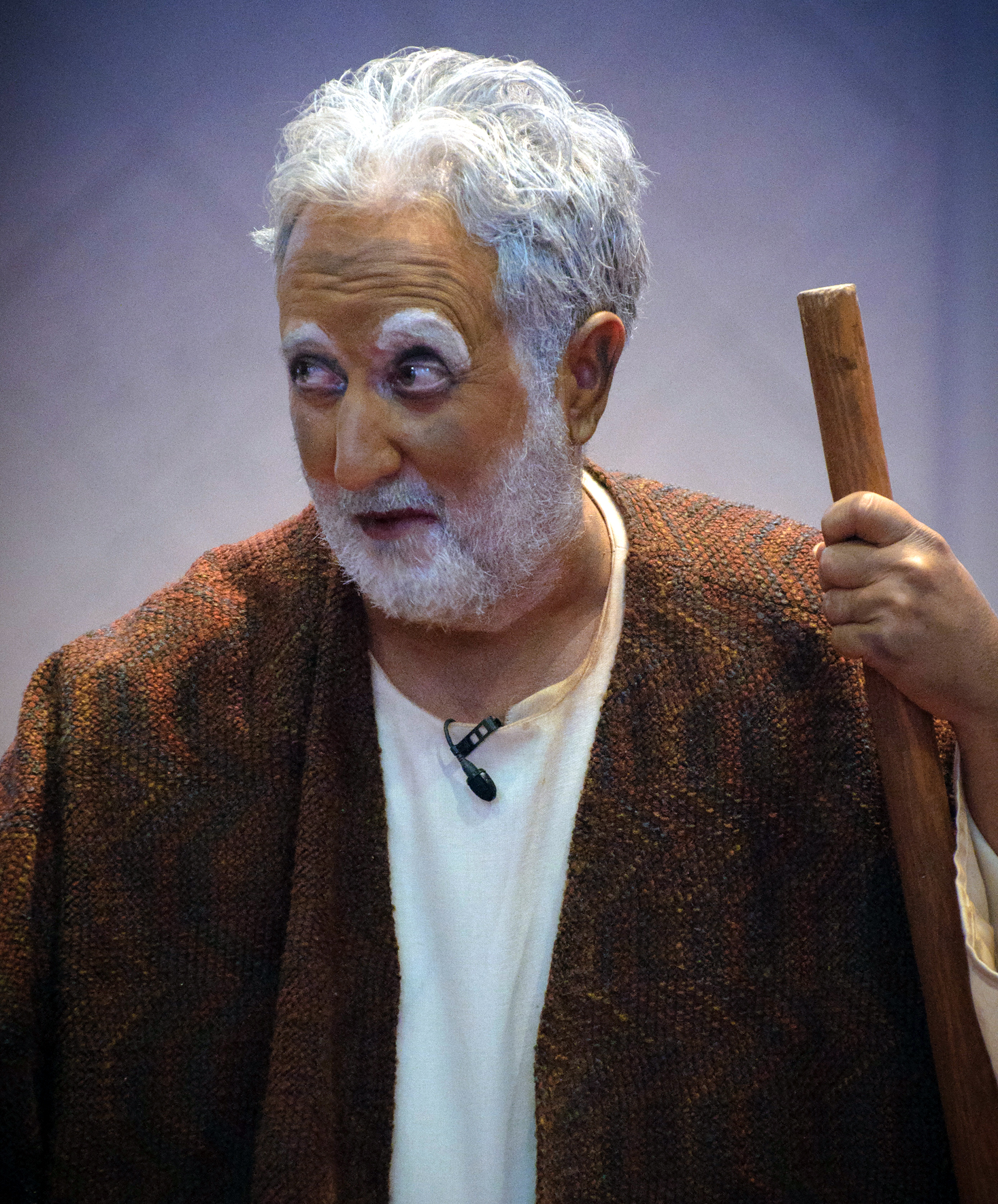
NEW ORLEANS (BP) — The New Orleans Baptist Theological Seminary chapel schedule listed Professor of Preaching Dennis Phelps as the featured speaker in chapel, but when the music stopped and the stage cleared for the sermon to begin that morning, Phelps was nowhere to be found.
After a few quiet moments, a door at the back of Leavell Chapel creaked open and the rhythmic tapping of a walking staff began to move toward the front. People in the crowd turned to see a man with white, wiry hair and matching beard and bushy eyebrows, dressed in ancient Jewish-style garb, moving slowly up the aisle.
“I hope it’s OK that I came in,” the man said. “It’s as cold as a Judean hillside in the winter out there! Goodness gracious!”
The man — Phelps dressed as and playing the role of Isaiah — spent a few minutes marveling at differences he saw between his day — which he identified as eighth century B.C. Israel — and the present day.
“In the temple in my day, we had everyone divided into their similarities. All the men stood together, all the women stood together, the Gentiles had their own place,” he said. “But there’s no division here. You’re all sitting — and that’s another thing. You’re all sitting. In my day, in the great temple, we stood to worship.
“Isaiah” then held up a copy of the Bible and marveled.
“This is a strange book! I mean, first of all, it’s a strange language. When I go from right to left, it doesn’t make any sense to me,” he said [Hebrew is read from right to left, unlike English]. “And how did you get the parchment so thin?”
He also remarked about the people’s manner in worship. The people in chapel, he said, seemed somewhat anxious — understandable given the fact that most students were in the midst of finals. He also noted that the children in the nearby daycare seemed as if they were anticipating something exciting — Christmas. And he said that sense of expectation and anticipation reminded him of his own people.
“You see, God had made a promise to us. That’s what we held on to. A promise,” he said. “A promise that one day God — praise be His holy name — would send to us the Promised One, the Messiah, and that when the Promised One came, He would grant peace to all of those who entered into covenant with Him.”
“Isaiah” set the stage for the people in chapel by reading from Isaiah 6, the famous passage where the prophet sees God “high and lifted up.” Isaiah’s vision came at a critical time in the life of the nation.
“You see, we had known peace and prosperity, and it wasn’t long after King Uzziah died that our whole nation just imploded,” he said.
There was a crisis of leadership, the people began going their own way, and a rival nation began to oppress Israel.
“They were blaming God, but what I saw was an opportunity for us all to turn back to God — praise be His holy name,” he said.
“Isaiah” said that, in spite of Assyrian oppression, he encouraged the people with the promise that God one day would come to them and change things.
As Isaiah 9:6-7 reads, “For a child will be born for us, a son will be given to us, and the government will be on His shoulders. He will be named Wonderful Counselor, Mighty God, Eternal Father, Prince of Peace. … The zeal of the Lord of Hosts will accomplish this.”
“That was the promise God had made to us. I drew comfort from it. I tried to encourage others,” he said. “Some heard it gladly. Some like some of you waited anxiously, wondering if God — praise be His holy name — would keep His promise. … A handful of us began to dream what it might be like when the Holy One would come of the scene.”
“We may not have understood it all, but we recognized it would be an amazing day,” he said.
“Isaiah” said the waiting was hard, but it wasn’t in vain.
“Believe me, I know what it means to wait. We waited over 700 years. God makes good on His promises, and I’m grateful that through all those years of waiting, there were a handful that remained faithful,” he said, recalling the period between when Isaiah lived and when Jesus was born.
“Isaiah” then asked if the people in chapel ever have trouble waiting on God. If so, he offered himself as encouragement.
“When you have trouble waiting, just remember me. Remember me and my people. In the darkest days we had ever known, all that we had was a promise. Just a promise, and we waited,” he said.
And then he reminded them of a similar promise all believers are waiting on today to be fulfilled.
“The hope of God’s coming was great news in my day, and I’m guessing it’s still great news in your day,” he said. “I heard that God — praise be His holy name — has made it a promise that he’s going to come again. Imagine that, now all of us together are waiting on God again.”
As he made his way back down the aisle to leave Leavell Chapel during the Dec. 6 service, “Isaiah” challenged the people to “wait in patience for our God — praise be his holy name — to keep his promise.” He also called out, “The Spirit of the Lord is upon me!”
And with that, the man who called himself “Isaiah” slipped out of Leavell Chapel.
–30–
Frank Michael McCormack is assistant director of public relations at New Orleans Baptist Theological Seminary (NOBTS.edu).
















